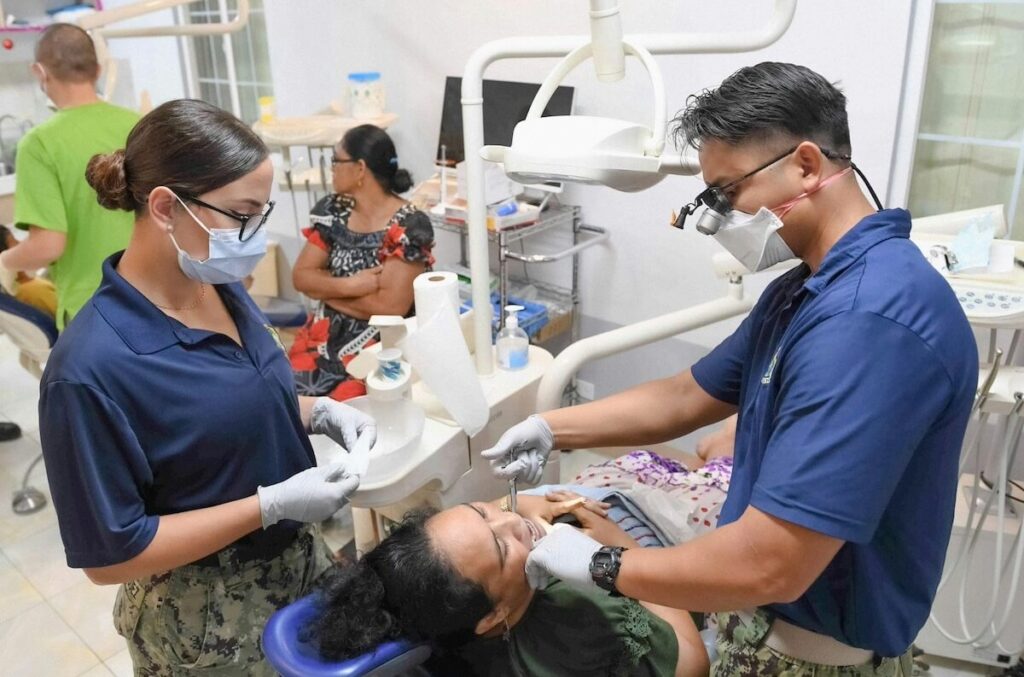When we think about health, we often picture exercise, diet, or regular medical checkups. Yet one of the most overlooked indicators of well-being begins right in our mouths. A confident smile isn’t just about appearance; it reflects physical health, self-esteem, and emotional balance. For residents looking to improve their oral care, visiting a specialty dental clinic in Vancouver can be a transformative step. Modern dentistry now goes far beyond cleanings and fillings; it’s deeply intertwined with psychology and overall wellness.
The Smile–Confidence Connection
A smile can do more than brighten a face; it shapes how others perceive us and how we feel about ourselves. Studies from the University of British Columbia have found that people who smile more frequently are viewed as more approachable, competent, and trustworthy. These social perceptions can directly impact confidence levels, job performance, and even relationship satisfaction.
But the relationship works both ways. People who feel self-conscious about their teeth due to misalignment, discoloration, or missing teeth are often less likely to smile, leading to reduced social interaction and lower self-esteem. Over time, this can contribute to anxiety or avoidance in social situations.
Dental Health and Mental Well-being
Beyond confidence, oral health has tangible links to mental health. Poor dental hygiene or chronic pain can increase stress hormones like cortisol, influencing mood and energy levels. For some, persistent dental issues create a feedback loop: discomfort leads to embarrassment, which in turn leads to avoidance of care, worsening the problem.
In contrast, taking control of one’s dental health, whether through aesthetic improvements or corrective treatments, often results in emotional relief. Many patients report feeling more “like themselves” after addressing long-standing dental concerns. The physical improvement often acts as a catalyst for psychological healing.
Physical Health Connections
The mouth is a window into the body. Dentists are often the first to detect signs of systemic health issues such as diabetes, heart disease, or immune disorders. Gum inflammation, for example, is associated with increased cardiovascular risk due to chronic inflammation pathways shared by both conditions.
Maintaining oral hygiene isn’t only about teeth; it supports the body’s defense against infection. Bacteria from untreated gum disease can enter the bloodstream, potentially affecting organs. This is why consistent dental care is considered an essential part of preventive medicine, not just cosmetic maintenance.
Modern Approaches to Care
Advancements in dental technology have revolutionized both treatment and patient comfort. Clinics today focus on minimally invasive techniques, digital imaging, and personalized care plans. Sedation options and laser-assisted procedures have made formerly intimidating treatments manageable, even for those with dental anxiety.
For people in Vancouver, specialty clinics provide multidisciplinary services, from orthodontics and implantology to cosmetic smile design, all within one practice. This comprehensive approach means patients can address both function and aesthetics while maintaining a long-term relationship with their care team.
The Psychology of Smiling
Smiling triggers a cascade of positive effects in the brain. When you smile, facial muscles send signals to the nervous system that stimulate the release of dopamine and serotonin, chemicals associated with happiness and calm. The act itself can elevate mood, even when it’s forced.
This phenomenon, known as the “facial feedback hypothesis,” demonstrates that our body language doesn’t just express emotion; it can also influence it. By improving dental health and removing barriers to smiling, people can experience genuine boosts in mood and self-assurance.
Overcoming Dental Anxiety

One of the biggest obstacles to regular dental care is fear. Dental anxiety affects nearly 20% of Canadians, according to the Canadian Dental Association. Fortunately, modern clinics prioritize patient comfort. Strategies such as noise-cancelling headphones, aromatherapy, and guided relaxation help reduce stress during procedures.
Education also plays a key role. When patients understand what to expect, fear diminishes. Many Vancouver clinics now offer pre-visit consultations and 3D visualizations, allowing patients to see treatment outcomes before they begin, which builds trust and confidence in the process.
The Broader Impact of Oral Health
Good dental health doesn’t just impact the individual; it has societal implications. Studies have shown that people with healthy smiles are more likely to be hired, more satisfied in their careers, and experience better interpersonal relationships. These findings suggest that dental wellbeing contributes to economic and social wellbeing as much as physical health.
Schools and community programs that emphasize oral hygiene education in early childhood also help reduce disparities later in life. Prevention, after all, remains the cornerstone of lifelong health.
Investing in Yourself
Ultimately, investing in dental care is an investment in confidence. Whether it’s whitening, orthodontic correction, or restorative treatment, the results extend far beyond appearance. A healthy, radiant smile has the power to transform how a person carries themselves and how the world responds.
Residents of British Columbia have access to some of the most advanced practices in North America, which integrate restorative, aesthetic, and preventive care. For further insights into the connection between oral health and overall well-being, the Canadian Dental Association highlights research showing how oral care supports both physical and psychological health.





Comments are closed